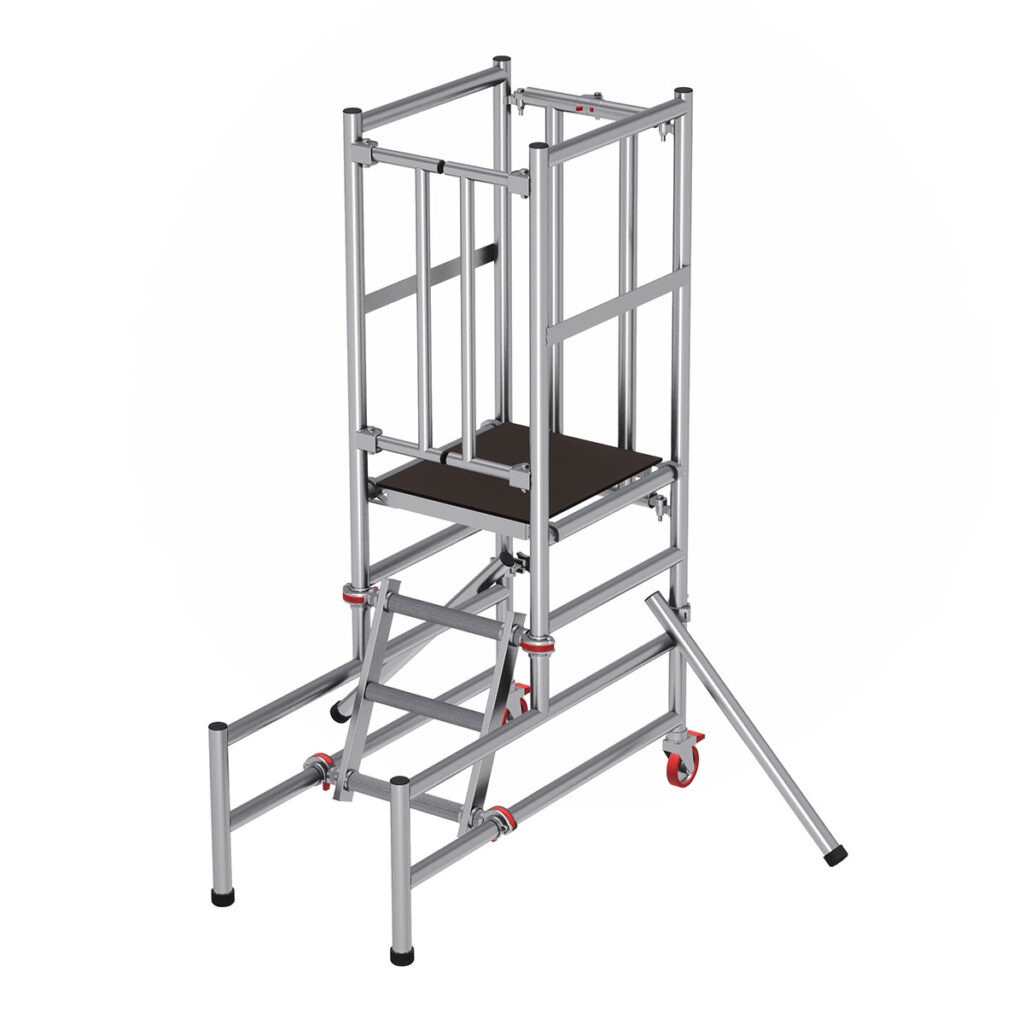Overview
The PASMA Low Level Towers for Users course is designed for individuals who need to work at height using low-level access towers. These towers are typically used for tasks such as maintenance, inspection, and cleaning in environments where the height required is relatively low, but safety is still a priority. This course provides essential training in the safe use, assembly, and dismantling of low-level access towers, focusing on minimising risks associated with working at height while maximising productivity.
The training combines theoretical knowledge with practical exercises, ensuring participants gain the skills and confidence to work safely on low-level towers. Upon completion of the course, individuals will be certified to use low-level access towers in compliance with PASMA standards and safety regulations, ensuring they are equipped to safely perform tasks at height in a wide range of environments.
Who Should Attend?
The PASMA Low Level Towers for Users course is ideal for individuals who are required to work at height on low-level towers but may not need the extensive training required for full-height mobile access towers. This course is suitable for:
- Site workers, construction workers, or tradespeople who need to access low-level heights (e.g., under 2.5 meters)
- Maintenance workers, cleaners, and inspectors working on low-level access tasks
- Anyone who needs to use low-level access equipment in environments such as offices, warehouses, retail spaces, or residential areas
- Supervisors or managers who need to understand safe practices for workers using low-level towers
- Individuals responsible for site safety or those conducting risk assessments for tasks involving low-level towers
No prior experience is necessary, making it ideal for those new to working at height or those who want to build confidence using low-level access equipment.
What You’ll Learn
The PASMA Low Level Towers for Users course covers the following key areas:
- Introduction to Low-Level Access Towers: Understanding the function and types of low-level access towers, and the specific tasks for which they are suitable. This includes mobile podium steps, low-level platforms, and other low-height access solutions.
- Legal and Safety Requirements: An overview of the relevant legislation and regulations for working at height, including the Work at Height Regulations (UK) and PASMA standards. Participants will learn about the employer and employee responsibilities for ensuring safe work practices.
- Risk Assessment and Worksite Preparation: How to conduct a risk assessment before working at height, including identifying potential hazards (e.g., unstable ground, obstacles, or overhead risks) and ensuring proper planning before using a low-level tower.
- Low-Level Tower Components: Familiarisation with the key components of a low-level tower, including platform, base, guardrails, castors, and stabilisers, as well as understanding their correct assembly and inspection requirements.
- Safe Assembly and Dismantling: Step-by-step guidance on the correct procedures for assembling and dismantling low-level access towers, with a focus on ensuring stability, securing the tower, and adhering to safety protocols at all times.
- Safe Use of Low-Level Towers: Techniques for using low-level access towers safely, including correct posture, maintaining three points of contact, and managing risk while working at height. This includes practical instruction on climbing, positioning, and manoeuvring the tower.
- Inspection and Maintenance: How to perform daily pre-use inspections to ensure the equipment is in safe working condition. Participants will learn to identify common faults or issues that could affect the stability or safety of the tower.
- Emergency Procedures: Procedures to follow in case of an emergency, such as tower malfunction or worker fall, and how to ensure the safety of workers at height in case of an incident.
Certification & Assessment
Upon successful completion of the PASMA Low Level Towers for Users course, participants will receive:
- PASMA Low Level Towers for Users Certificate
- PASMA Photo ID Card, confirming the participant is competent to use low-level access towers safely and in accordance with PASMA guidelines.
Assessment: The course includes both theoretical and practical assessments:
Written Exam: A short multiple-choice test covering topics such as safety regulations, risk assessments, and the proper use and inspection of low-level access towers.
Practical Assessment: Participants must demonstrate their ability to safely assemble, use, and dismantle a low-level tower. They will also need to show competency in performing safety checks and operating the equipment safely in a practical environment.
Validity: The PASMA Low Level Towers for Users certification is valid for 5 years. After this period, participants will need to undergo revalidation to maintain their certification.
By completing this course, participants will have the knowledge and practical skills needed to safely and efficiently use low-level access towers. This certification helps ensure compliance with safety regulations, reduces the risk of accidents, and promotes a culture of safety in the workplace.
Maximum Candidates
Maximum of 12 candidates
Duration
Half a Day
Price
£110 + VAT / person

Find a date that works

Hi there, I'm Scott Grant
Scott Grant is a seasoned Training Manager and Royal Navy veteran with over 20 years of expertise in the training and access equipment industry. He delivers accredited training programs for MEWPs, MCWPs, construction hoists, health and safety, first aid, and fire safety.
Scott is a Senior IPAF Instructor and certified PASMA Instructor and also delivers CITB and IOSH-accredited courses, ensuring industry-leading standards and compliance with health and safety regulations.
Here at Mace Training, Scott plays a pivotal role in developing training strategies that address evolving workforce needs, helping professionals operate safely and efficiently in demanding environments.

Scott Grant
Training Manager
